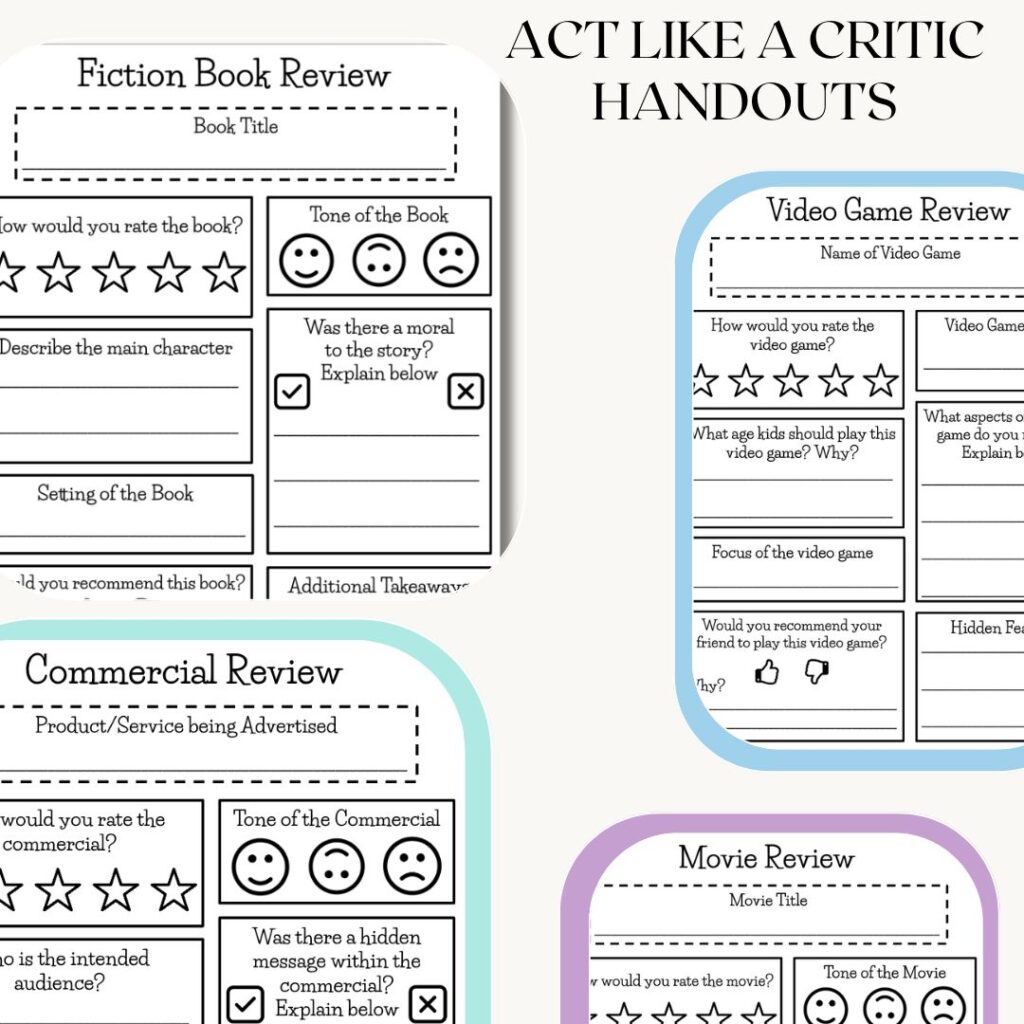Top 5 Reasons to Teach Your Students to be Critical Thinkers

Have you ever gone to the movies and instantly shared an opinion on whether the movie was good or not, if you liked the main characters, or if you would have written the ending differently? Being critical is second nature to all of us and is something we do daily. Have you ever put on a shirt and taken it right off because you did not like the way it looked? That’s being critical. Have you ever gone to a restaurant and just not enjoyed your food? That’s being critical. Have you ever been in a meeting and felt that you could have taught that topic better than the presenter? That’s being critical. We are here to tell you it is okay to be critical. We all have that in common and our students do this ALL the time without even realizing it.
There are many positive reasons to teach your students to be critical without always viewing it as a negative. Critics help evaluate and analyze different pieces of art, movies, books, music, and so much more. The insights that people share shape the opinion of others and can heavily influence whether that product or movie will be successful.
But, we must advise our students that when you are critical you also have certain responsibilities. The purpose of a critic is to provide feedback that becomes constructive and useful to the creator so that they can improve their product. Critics must be fair, objective, and knowledgeable with their comments. Criticism can be challenging for adults and young kids to hear so we need to remember to learn how to be critical in a meaningful and positive way.

Teaching students to be critical has many benefits that can have a positive impact on their academic and even personal lives. Here are the benefits of being critical:
- Improves critical thinking skills: when you are learning how to be critical you are also learning how to analyze, evaluate, and interpret all sorts of information.
- Encourages creative thinking: when you teach students to be critical, you are also encouraging them to think creatively and come up with original ideas.
- Promotes effective communication: when you are encouraging students to be critical you are also prioritizing effective communication skills that include; listening, speaking, and writing.
- Builds confidence: when you enlighten students to be critical you are building their confidence and ability to express themselves and communicate their ideas effectively.
- Fosters empathy: when you guide students to be critical you are also encouraging perspective taking and the ability to develop empathy and understanding towards others.
Overall, by teaching students to be critical we are empowering them to become better communicators, thinkers, and most importantly problem-solvers. These are all life skills that will prove to be invaluable as they become independent adults who need to make decisions. Check out our print and go bundle of reviews that focus on movies, commercials, non-fiction books, fiction books, TV shows, and video games.







